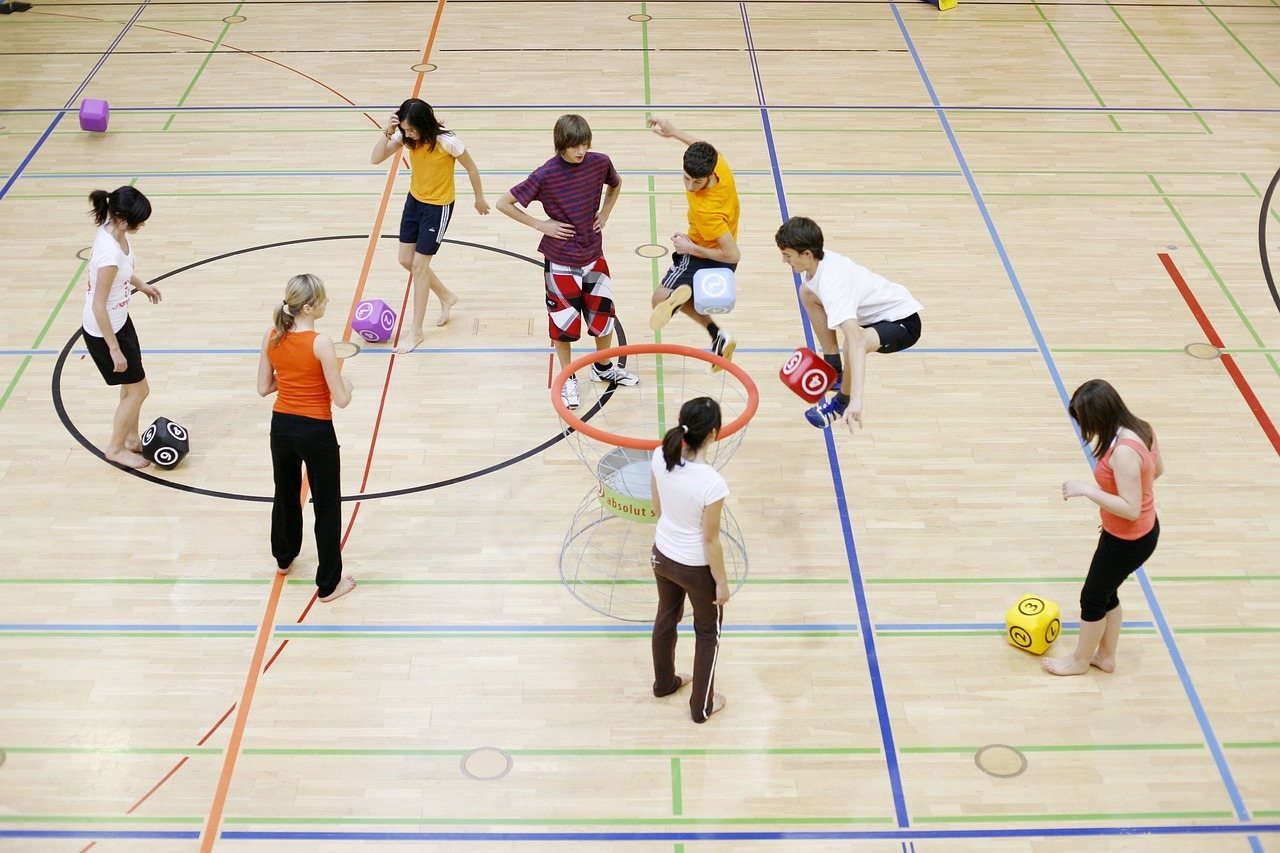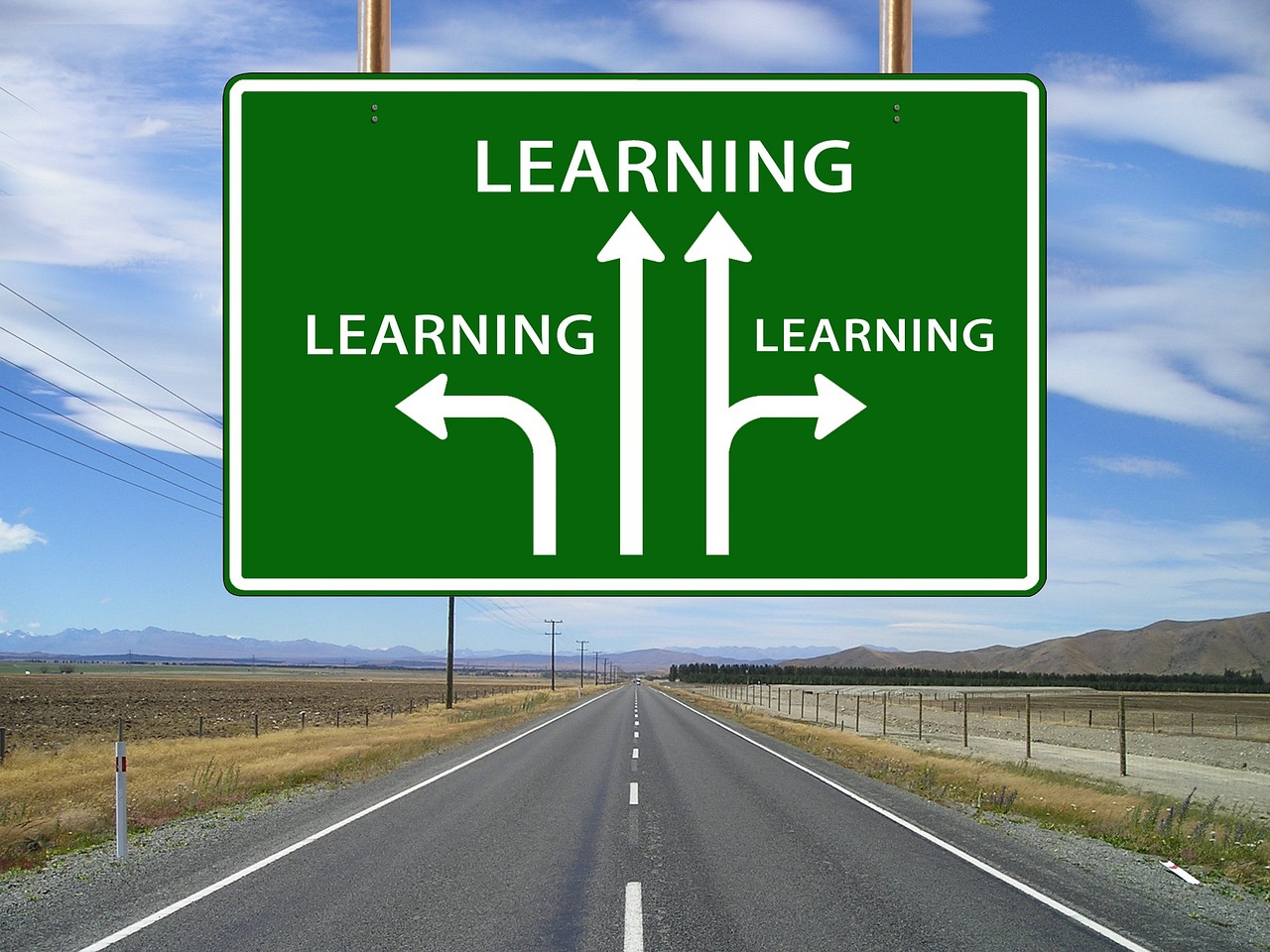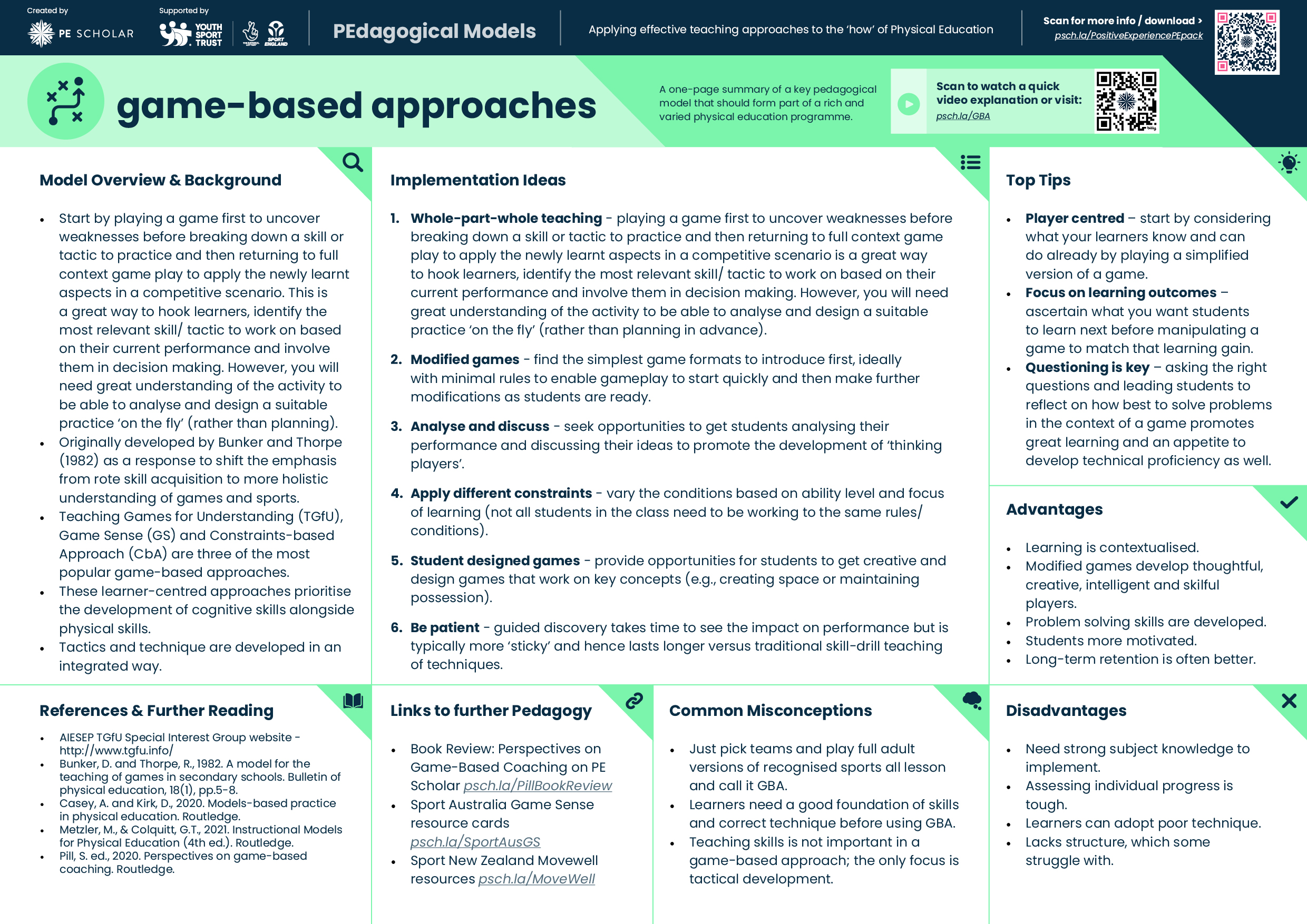
Applying effective teaching approaches to the ‘how’ of Physical Education (PE)
In this series, we present six one-page summaries of key Pedagogical Models that should form part of the diet of rich and varied PE delivery.
Each of these models provides a structured framework to guide the teaching and learning process, enhancing the overall effectiveness of physical education programmes.
The benefits of applying PE pedagogical models
Organised and purposeful lesson plans
Pedagogical models help PE educators create learning material and carefully planned lessons designed to address key learning objectives. They also promote a systematic progression of skills and knowledge to meet intended learning outcomes, facilitating a logical and effective learning journey for students.

Differentiated instruction
Moreover, these models contribute to differentiated instruction, allowing teachers to tailor their approach to meet the diverse needs and abilities of students. By incorporating various and effective teaching strategies and styles, pedagogical models enhance engagement and understanding among students with different learning preferences. Variety is the spice of life and all that!

Incorporation of critical life skills
Additionally, the use of pedagogical models in PE delivery supports the development of critical life skills such as teamwork, communication, creativity and problem-solving. Structured lesson plans enable educators to integrate these skills seamlessly into physical activities, promoting holistic student growth.

Holistic development
It is widely accepted that PE has the potential to develop physical, cognitive, social and affective domains of learning. By using a rich variety of ‘models’ in your practice it can pave the way to move ‘beyond the physical’ to recognise, develop and celebrate wider skill development that is essential to success in PE, in sport, and in life.
Assessment and evaluation
Furthermore, employing pedagogical models assists in the assessment and evaluation of student progress. The models prompt the incorporation of measurable criteria for evaluating individual and collective achievements in PE, aiding in the identification of areas for improvement and adjustment of instructional strategies.

Today’s PEdagogical model: games-based approaches
Unlike traditional skill-drill teaching methods that focus on isolated practices and mastering component parts of a game before their application in a game scenario, game-based approaches highlight the significance of games understanding, decision-making, and tactical awareness. Notable game-based approaches include Teaching Games for Understanding (TGfU), Game Sense (GS), and Constraints-based Approach (CBA). These learner-centred approaches prioritise the simultaneous development of students’ own learning of cognitive skills and physical skills, while emphasising a holistic understanding of the game rather than a segmented approach to skill acquisition.

Advantages
- Learning is contextualised
- Holistic understanding promotes transfer
- Problem solving skills are developed
- Long-term retention is often better
- Modified games develop thoughtful, creative, intelligent & skilful players
- Tactics and technique developed in an integrated way
- Students are more motivated
Disadvantages
- It takes time to incorporate
- Some basic skills are required in order to play a modified game
- Difficulty assessing individual progress
- Need strong subject knowledge to implement
- Learners can adopt poor technique
- Lacks structure
One-page summary – games-based approaches
Download the attached one-page summary for further information on games-based approaches
Curriculum development: Why not use it to guide a PE department meeting followed by a period of testing and instructional coaching to help develop your repertoire of approaches to teaching.
It includes a short video available via the QR code to bring it to life along with:
Implementation ideas
Top tips
Common misconceptions
Links to further pedagogy

Coming soon! Next in the series
Look out for the next in our PEdagogical models series:
Sport education
Health-based PE (HbPE)
Teaching personal and social responsibility (TPSR)
Previous PEdagogical models in the series
You can also access previous posts and one page summaries on:
Direct instruction by clicking here
Cooperative learning by clicking here
Further information
Resources
PE Scholar has numerous resources for physical educators on games-based approaches
Research
Teaching games for understanding and situated practice
Book review
Perspectives on games-based coaching



Responses